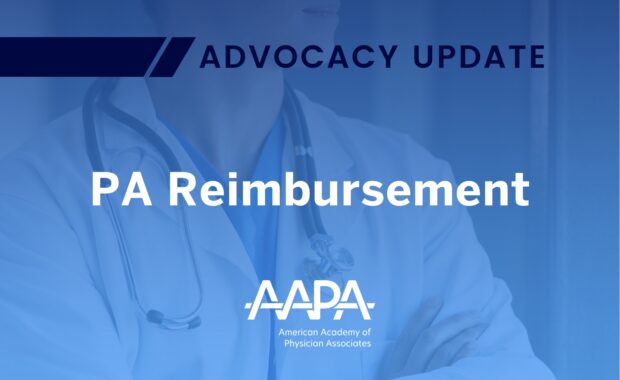Colorado Academy of PAs One Step Closer to Move from Supervision to Collaboration
SB 83 Clears Senate Health and Human Services Committee, Advances to Full Senate
March 3, 2023
The Colorado Senate Health and Human Services Committee passed SB 83 yesterday by a vote of 6 to 3. This bill would modernize Colorado’s PA Practice Act, removing the requirement for PAs to be supervised by a physician. Under the legislation, PAs would be required to have an ongoing collaborative agreement with a physician or employer. The bill has been referred to the full Senate, but a date has not been set for a Senate vote. The bill must pass both the full Senate and the full House before being sent to the governor to sign into law.
Working closely with the Colorado Academy of Physician Assistants (CAPA), AAPA President and Chair of the Board Jennifer M. Orozco, DMSc, PA-C, DFAAPA, testified in support of the legislation. CAPA secured a diverse and robust list of stakeholders including PAs, physicians, and other healthcare providers who spoke to the limitations the current laws place on PA practice and the impact on patients in all areas of the state.
“PAs are part of the solution to improving access to care for every patient, whether they live in urban Denver or in rural Gunnison,” Orozco stated in her testimony.
“The COVID pandemic starkly demonstrated the need to have an efficient and modern set of laws and regulations that allow qualified healthcare providers to respond to patient needs and meet them where they are. Modernizing Colorado’s practice laws will also incent the PAs trained at your four Colorado PA programs to remain here and serve the patients within those communities.”
Chief Medical Officer at DispatchHealth Phil Mitchell, MD, MS, was one of several physicians who testified in support of the bill. Mitchell emphasized how commonsense changes to Colorado’s law will make a difference to patient care.
“Modernizing state regulations and empowering PAs to extend care at the top of their licenses overnight will make an impact,” Mitchell said.
Susanna Storeng, DMSc, MPAS, CPAAPA, DFAAPA, PA-C, spoke to how the state’s current practice laws are driving PAs out of the state, sharing her experience losing her ability to care for her patients in a rural area of Colorado after her supervising physician changed.
“As a rural health constituent and a rural health advocate, I have worked in rural health for 20 years,” Storeng said.
“I have worked in Colorado rural health for 10 years. I am leaving the state of Colorado in one month because, as a single income family, I cannot risk my children’s welfare by not being able to have a job. I cannot risk that for my family. And I will be moving to a state that does not have the same PA Act that Colorado has.”
AAPA congratulates CAPA for clearing the first major hurdle and encourages all PAs in Colorado to get involved in CAPA’s grassroots efforts by emailing your legislators and asking for their support for SB 83.
You May Also Like:
AAPA’s Priority Federal Legislation Reintroduced into 118th Congress
Legislation Authorizing PAs to Provide Treatment to Federal Workers Injured on the Job Reintroduced in 118th Congress
Release of PA Licensure Compact Model Legislation Critical Step Toward Advancing PA Profession Interstate Practice Mobility
